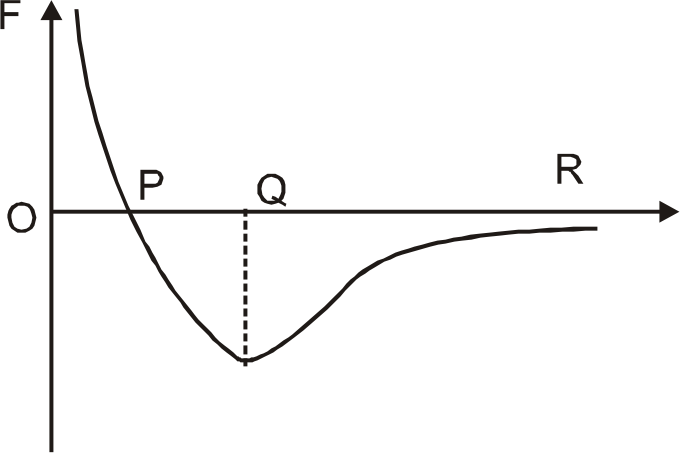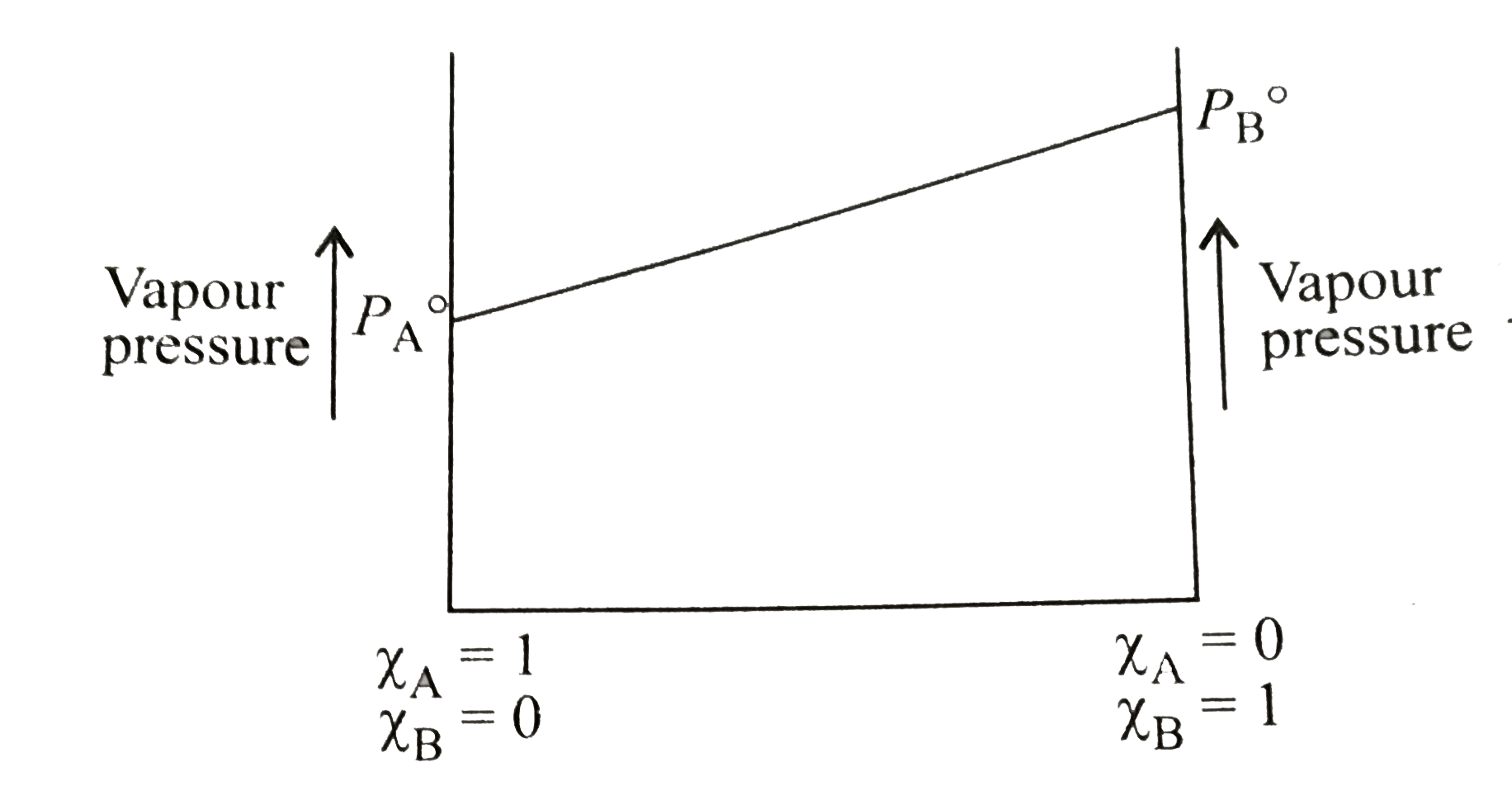Adsorption is the tendency of accumulation of molecular species at the surface of solid or liquid. Depending upon the nature of bonds or forces of attraction between adsorbate and adsorbent. It is classofied between physisorption and chemisorption.
Which of the following statements are correct? (More than one correct)
Adsorption always leads to a decrease in enthalpy and entropy of the system.
Adsorption arises due to unsaturation in the enthalpy of valency force of atoms or molecules on the surface.
Adsorption increases with rise in temperature.
Adsorption decreases the surface energy.
The correct Answer is:A, B, D
To determine which statements about adsorption are correct, we need to analyze each statement based on the principles of physisorption and chemisorption, as well as the thermodynamic aspects of adsorption.
1. Understanding Adsorption:
- Adsorption is the process where molecules (adsorbate) accumulate on the surface of a solid or liquid (adsorbent).
- It can be classified into two types: physisorption (weak van der Waals forces) and chemisorption (strong chemical bonds).
2. Analyzing the First Statement:
- Statement: "Adsorption always leads to decrease in enthalpy and entropy of the system."
- Analysis:
- During adsorption, the system typically releases energy (exothermic process), leading to a decrease in enthalpy (ΔH < 0).
- However, the entropy (ΔS) may decrease because the adsorbate molecules become more ordered at the surface compared to their gaseous state. Thus, this statement is correct.
3. Analyzing the Second Statement:
- Statement: "Adsorption arises due to unsaturation in the enthalpy of valency forces of atoms or molecules on the surface."
- Analysis:
- This statement refers to the presence of unoccupied valence orbitals or unsaturated bonds on the surface of the adsorbent, which can attract adsorbate molecules. This is a fundamental reason for adsorption. Thus, this statement is correct.
4. Analyzing the Third Statement:
- Statement: "Adsorption increases with rising temperature."
- Analysis:
- Generally, for exothermic processes like adsorption, an increase in temperature tends to decrease the extent of adsorption because the system favors higher entropy states. Therefore, this statement is incorrect.
5. Analyzing the Fourth Statement:
- Statement: "Adsorption decreases the surface energy."
- Analysis:
- When adsorption occurs, the surface energy of the adsorbent decreases because the adsorbate molecules occupy surface sites and stabilize the surface. Thus, this statement is correct.
Conclusion:
The correct statements regarding adsorption are:
- Statement 1: Correct
- Statement 2: Correct
- Statement 3: Incorrect
- Statement 4: Correct
Final Answer:
The correct statements are 1, 2, and 4.
---
- Adsorption is the process where molecules (adsorbate) accumulate on the surface of a solid or liquid (adsorbent).
- It can be classified into two types: physisorption (weak van der Waals forces) and chemisorption (strong chemical bonds).
- Statement: "Adsorption always leads to decrease in enthalpy and entropy of the system."
- Analysis:
- During adsorption, the system typically releases energy (exothermic process), leading to a decrease in enthalpy (ΔH < 0).
- However, the entropy (ΔS) may decrease because the adsorbate molecules become more ordered at the surface compared to their gaseous state. Thus, this statement is correct.
- Statement: "Adsorption arises due to unsaturation in the enthalpy of valency forces of atoms or molecules on the surface."
- Analysis:
- This statement refers to the presence of unoccupied valence orbitals or unsaturated bonds on the surface of the adsorbent, which can attract adsorbate molecules. This is a fundamental reason for adsorption. Thus, this statement is correct.
- Statement: "Adsorption increases with rising temperature."
- Analysis:
- Generally, for exothermic processes like adsorption, an increase in temperature tends to decrease the extent of adsorption because the system favors higher entropy states. Therefore, this statement is incorrect.
- Statement: "Adsorption decreases the surface energy."
- Analysis:
- When adsorption occurs, the surface energy of the adsorbent decreases because the adsorbate molecules occupy surface sites and stabilize the surface. Thus, this statement is correct.
The correct statements regarding adsorption are:
- Statement 1: Correct
- Statement 2: Correct
- Statement 3: Incorrect
- Statement 4: Correct
The correct statements are 1, 2, and 4.
Topper's Solved these Questions
- SURFACE CHEMISTRYBook:CENGAGE CHEMISTRYChapter:SURFACE CHEMISTRYExercise:Exercises Multiple Correct
Explore 25 Videos
- SURFACE CHEMISTRYBook:CENGAGE CHEMISTRYChapter:SURFACE CHEMISTRYExercise:Exercises Single Correct
Explore 52 Videos
- SURFACE CHEMISTRYBook:CENGAGE CHEMISTRYChapter:SURFACE CHEMISTRYExercise:Exercises Subjective
Explore 10 Videos
- SOLUTIONSBook:CENGAGE CHEMISTRYChapter:SOLUTIONSExercise:Ex 2.3 (Objective)
Explore 9 Videos
- SYNTHETIC AND NATURAL POLYMERSBook:CENGAGE CHEMISTRYChapter:SYNTHETIC AND NATURAL POLYMERSExercise:Exercises Assertion Reasoning
Explore 10 Videos
Similar Questions
Adsorption is the tendency of accumulation of molecular species at the surface of solid or liquid. Depending upon the nature of bonds or forces of attraction between adsorbate and adsorbent. It is classofied between physisorption and chemisorption.
Which of the following characteristics is not correct for physical adsorption?
View SolutionFigure shows roughly how the force F between two adjacent atoms in a solid varies with inter atomic separation r. Which of the following statements are correct ?

View Solution
Knowledge Check
Adsorption is the tendency of accumulation of molecular species at the surface of solid or liquid. Depending upon the nature of bonds or forces of attraction between adsorbate and adsorbent. It is classofied between physisorption and chemisorption.
Which of the following gases is adsorbed most by activated charcoal?ACO2BN2CArDC2H6Adsorption is the tendency of accumulation of molecular species at the surface of solid or liquid. Depending upon the nature of bonds or forces of attraction between adsorbate and adsorbent. It is classofied between physisorption and chemisorption.
Which of the following gas molecules have maximum value enthalpy of physisorption?AC2H6BNeCH2DH2OWhich of the following statement (s) is/are correct (may have more than one option correct):
Athe rest mass of a stable nucleus is less than sum of the rest masses of its separated nucleons.Bthe rest mass of a stable nucleus is greater than the sum of the rest masses of its separated nucleons.Cin nuclear fission energy is released by fusing two nuclei of medium mass ( approximately 100 amu).Din nuclear fission energy is released by fragmentation of a very heavy nucleus.
The following is a graph plotted between the vapour pressure of two volatile liquids against their respective mole fractions. Which of the following statements is/are correct?

View SolutionAlthough, nitrogen does not adsorb on a surface at room temperature, it adsorbs on the surface at 83 K. Which one of the following statements is correct?
View SolutionAlthough, nitrogen does not adsorb on a surface at room temperature, it adsorbs on the surface at 83 K. Which one of the following statements is correct?
View SolutionAlthough nitrogen does not adsorb on surface at room temperature, it adsorbs on the same surface at 83K . Which one of the following statements is correct?
View SolutionAlthough nitrogen does not adsorb on surface at room temperature, it adsorbs on the same surface at 83K . Which one of the following statements is correct?
View Solution

